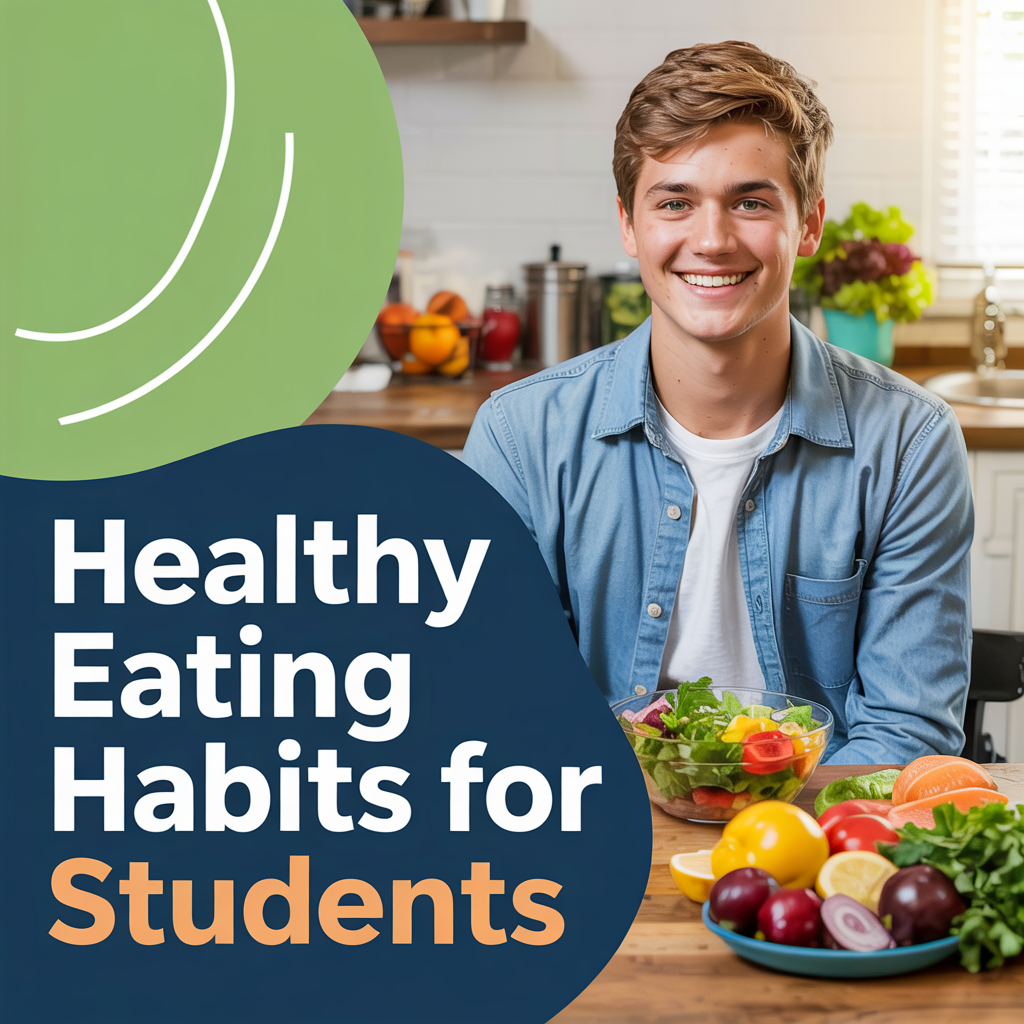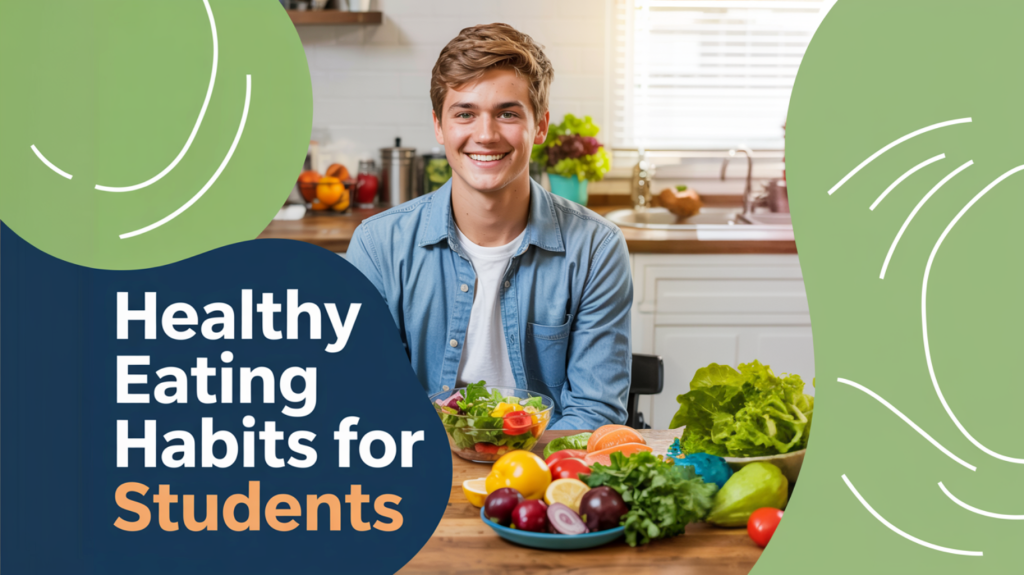Healthy Eating Habits for Students: Fueling Your Brain and Body for Success

As a student, you’re constantly on the go, juggling classes, studying, extracurricular activities, and a social life. It’s easy to grab whatever’s convenient, but prioritizing healthy eating habits can make a huge difference in your academic performance, energy levels, and overall well-being. This article will guide you through the importance of nutrition and provide practical tips for incorporating healthy eating habits into your busy student life.

The Power of Nutrition: How Food Impacts Your Brain and Energy
What you eat directly affects your brain function and energy levels. Nutritious foods provide the fuel your brain needs to focus, concentrate, and learn effectively. A balanced diet can improve memory, boost mood, and enhance cognitive function. On the other hand, processed foods and sugary drinks can lead to energy crashes, decreased concentration, and mood swings.
Fueling your brain with the right foods is just one part of student success. Keep track of your academic and extracurricular achievements with Cirkled In, a platform designed to help students shine in college and scholarship applications.
Essential Nutrients for Student Success
To optimize your health and academic performance, focus on incorporating these essential nutrients into your diet:
- Complex Carbohydrates: Provide sustained energy. Choose whole grains like brown rice, quinoa, and whole-wheat bread over refined grains.
- Protein: Crucial for brain function and cell repair. Include sources like lean meats, poultry, fish, beans, lentils, and tofu.
- Healthy Fats: Essential for brain health. Opt for sources like avocados, nuts, seeds, and olive oil.
- Vitamins and Minerals: Support overall health and well-being. Eat a variety of fruits and vegetables to get the vitamins and minerals you need.
Quick and Healthy Meal Ideas for Busy Students
Time is often limited for students, but healthy meals don’t have to be complicated. Here are some quick and easy meal ideas:
- Breakfast: Oatmeal with fruit and nuts, yogurt with granola and berries, whole-wheat toast with avocado.
- Lunch: Salad with grilled chicken or beans, whole-grain wrap with veggies and hummus, leftovers from dinner.
- Dinner: Pasta with marinara sauce and vegetables, stir-fry with tofu or chicken, baked salmon with roasted vegetables.
Smart Snacking: Fueling Up Between Classes
Snacks can be a great way to maintain energy levels between meals. Choose healthy snacks like:
- Fruits and vegetables
- Nuts and seeds
- Yogurt
- Hard-boiled eggs
- Trail mix (without added sugar)
Healthy Eating on a Student Budget: Tips and Tricks
Eating healthy doesn’t have to break the bank. Here are some tips for eating healthy on a student budget:
- Cook at home: Preparing your own meals is usually cheaper than eating out.
- Buy in bulk: Save money by buying non-perishable items in bulk.
- Choose affordable protein sources: Beans, lentils, and tofu are cost-effective protein options.
- Plan your meals: Planning your meals ahead of time can help you avoid impulsive and unhealthy food choices.
- Look for sales and discounts: Check weekly grocery store ads for deals on healthy foods.
Final Thought: Eat Smart, Study Strong: Healthy Habits for Students
By incorporating healthy eating habits into your daily routine, you can fuel your brain and body for optimal performance and well-being. Remember, small changes can make a big difference. Prioritize nutritious foods, plan your meals, and make smart choices to support your success as a student.
Need more tips on college applications, scholarships, or just how to survive this whole process? Cirkled In has your back—check out Cirkled In resources to help you through every step of your college journey!
Check out Cirkled In and start owning your future today!



0 Comments